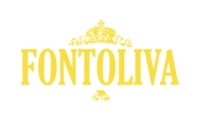The ruling, which dismissed Mueloliva’s claims that its Fuenoliva brand was being used commercially, marks the end of a four-year disagreement between the companies and EUIPO, and clears the way for Sovena to use the Fontoliva brand without opposition.
Sovena, a Portuguese producer of olive oils and other products, applied to register the Fontoliva brand in 2012 – but faced opposition from Mueloliva. In rulings in 2014 and 2015 the EUIPO upheld Mueloliva’s claim that its Fuenoliva brand was current, and the brand Fontoliva was too similar and would be confusing to consumers.
Sovena fights back
Last year Sovena took EUIPO to court, arguing there was little evidence that Fuenoliva was a current brand, and asking the European Court to annul EUIPO’s decision.

The court agreed with Sovena’s argument, finding the evidence for the use of Fontoliva amounted to 10 non-consecutive invoices from 2010 and 2011, three labels, extracts from studies, and two press articles, one from 2004.
It also noted that the recorded sales for Fuenoliva oil submitted in Mueloliva’s evidence amounted to just 42,000 litres, a very small quantity for the market in question, and with some of the oil sold under a variation of the Fuenoliva brand.
“Taken as a whole, the evidence adduced by Mueloliva cannot, therefore, contrary to what was found by the Opposition Division and confirmed by the Board of Appeal, establish a relatively constant use of the earlier mark capable of offsetting the low product sales under that mark,” the court judgment stated.
“It follows that genuine use of the earlier Spanish mark FUENOLIVA in Spain for virgin olive oil during the relevant period has not been established by Mueloliva... in particular having regard to the low volumes which were proved to have been marketed under that mark and the irregular nature of the sales in question during the relevant period in relation to the opposing party’s olive-oil-production capacity,” the judgment continued.
Interesting but not revolutionary
Commenting on the case, Luis Gonzales Vaque, a lawyer in Spain specialising in the food industry, said it was an “interesting but not revolutionary judgment”.
“It is interesting, but it is in the line of European Court of Justice case law that you have to demonstrate not only that you are the owner of a trademark, but that you have used this for a period of time,” said Vaque.
“The fact is that one of the companies did not prove that it was using the name before – as simple as that. It seems more complicated in the case, but this is classical case law we’ve seen in different subjects related to trademarks,” he added.
The court ruled EUIPO’s decision should be annulled, and ordered it to pay Sovena’s court costs, as well as ordering both EUIPO and Mueloliva to pay Sovena’s EUIPO costs.
